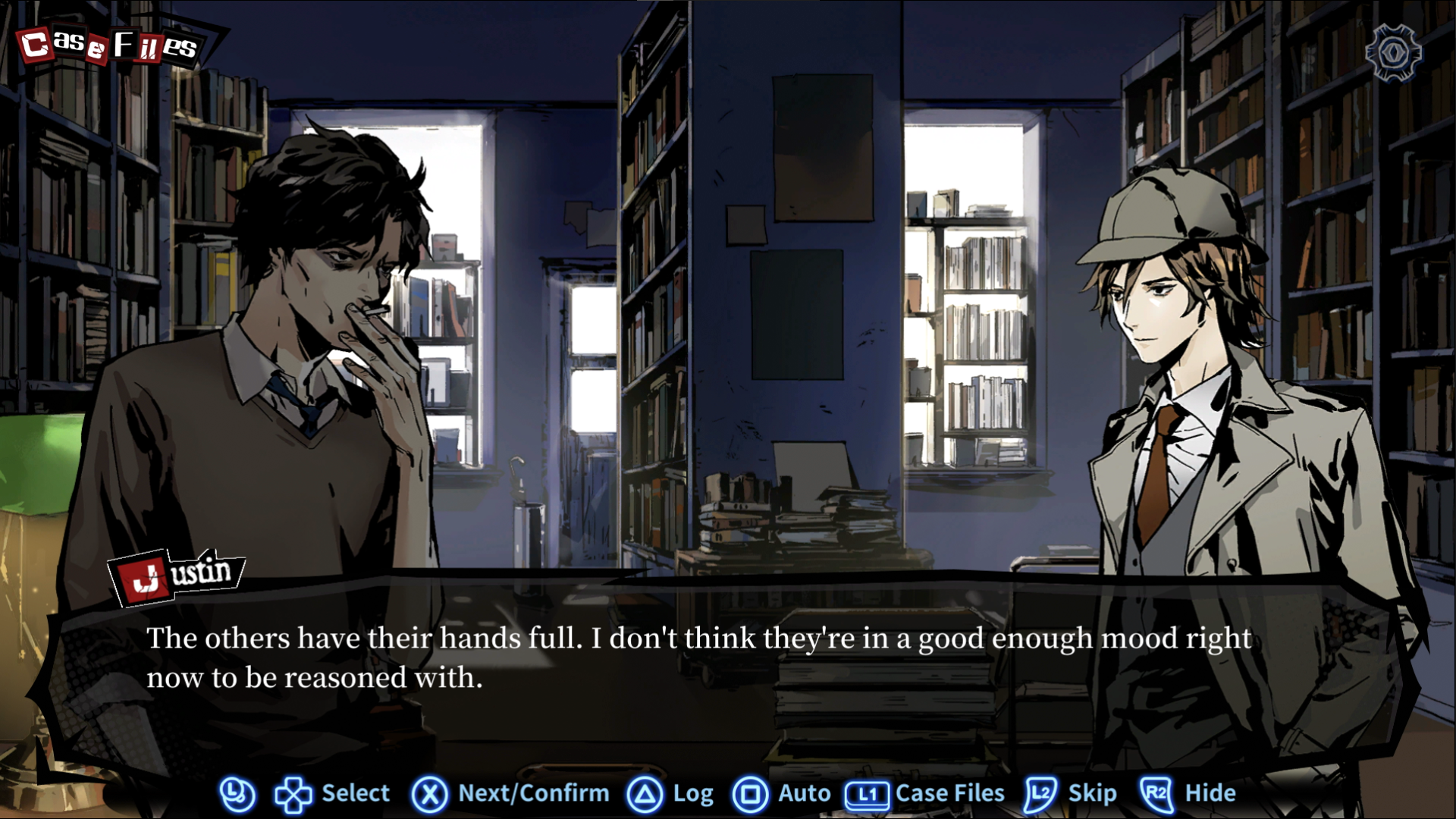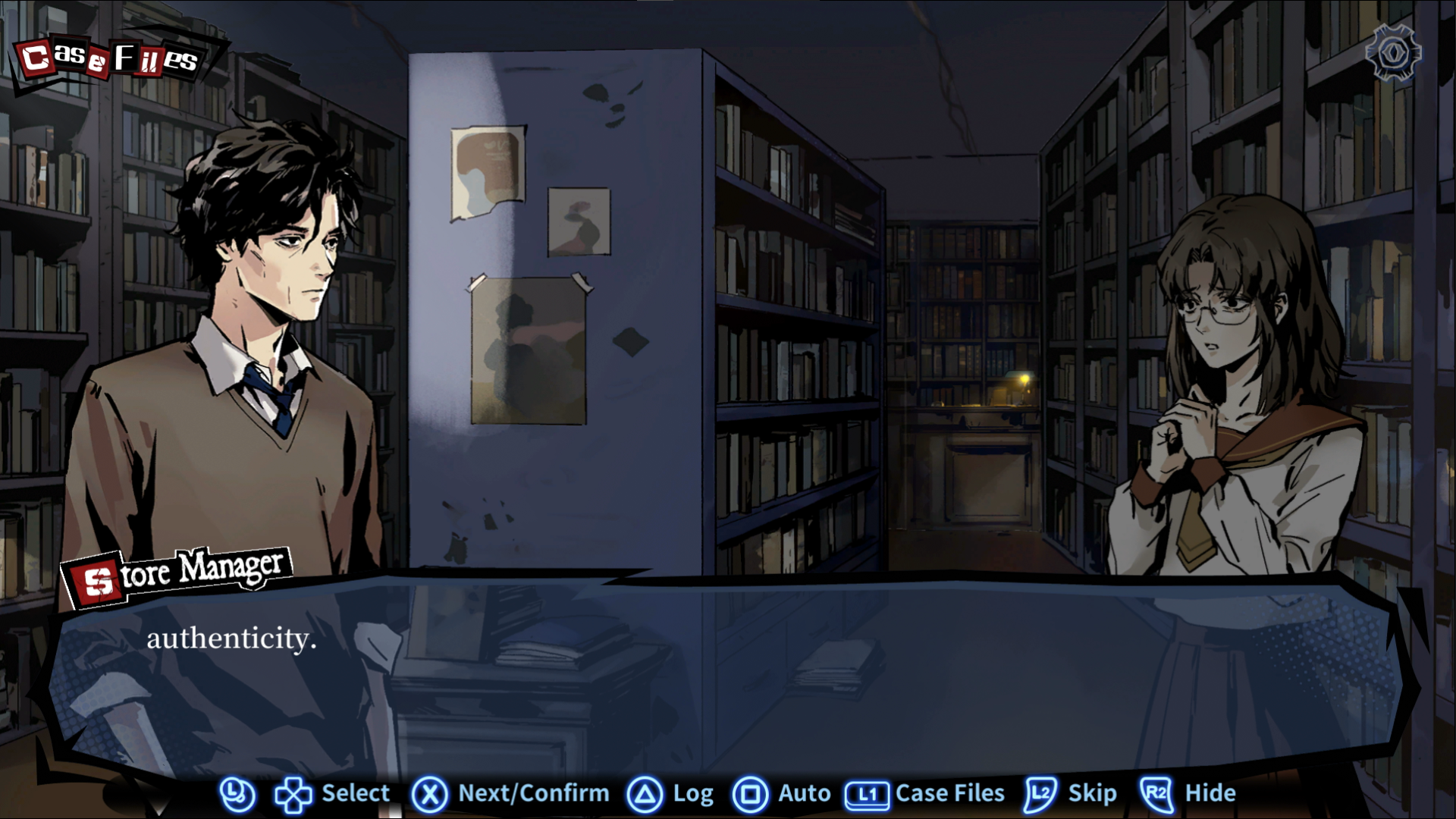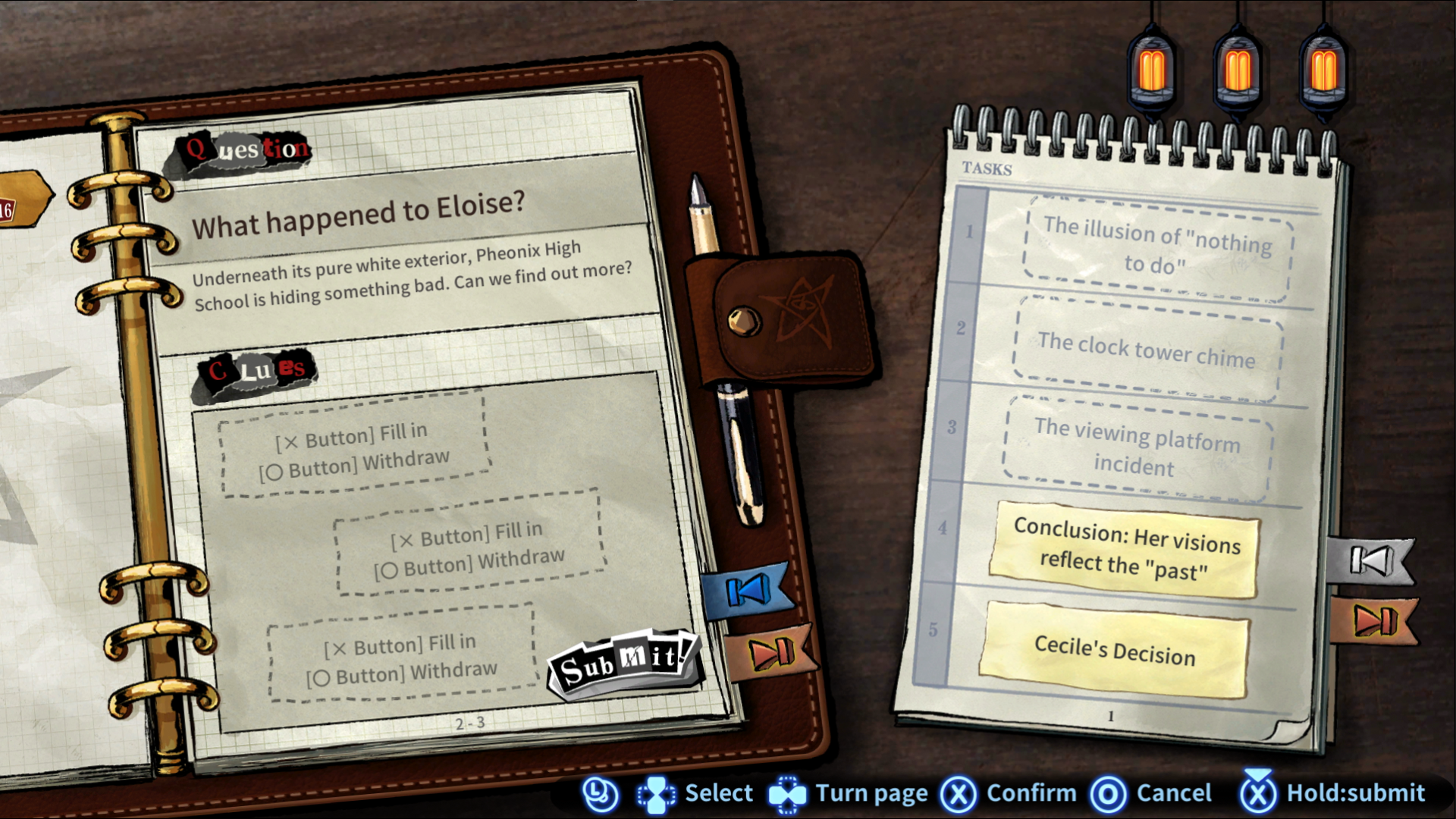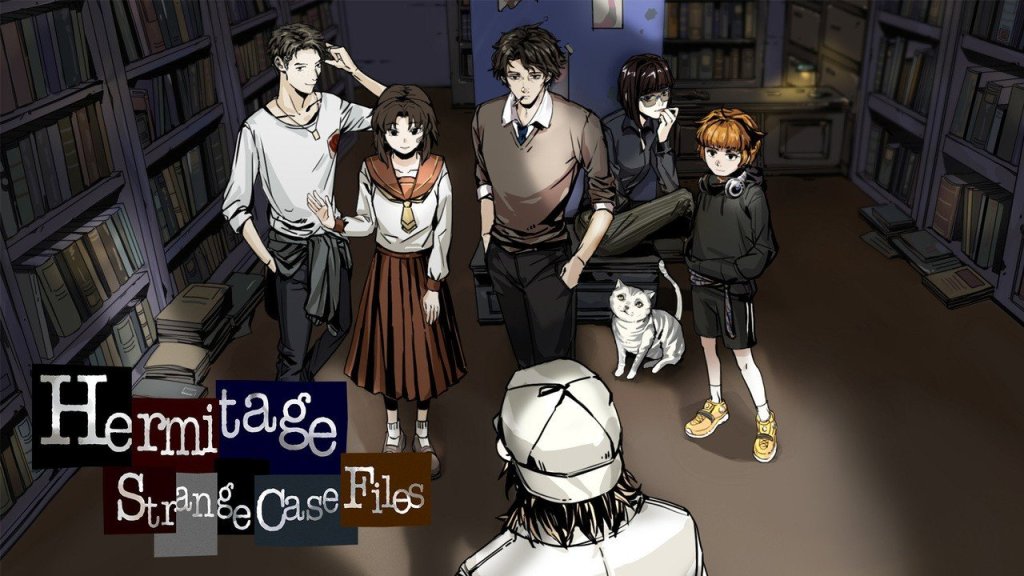As a pretty big fan of games like Ace Attorney and other investigative visual novel-style games like Hotel Dusk, I was instantly intrigued when I first heard about Hermitage: Strange Case Files. It ticked all the boxes and then some. A noir-esque investigation of strange supernatural occurrences, the piecing together of gathered evidence in order to get to a conclusion, and a cast of mysterious characters that are more than meets the eye. To top it all off, the game also reportedly features some Lovecraftian horror elements that give it a unique twist to the genre? I was completely on board!
Then I played the game.
You see, Hermitage: Strange Case Files was originally written and developed only in Chinese. With this latest release, the game was localized into English. And Hermitage: Strange Case Files, unfortunately, suffers from a major flaw that a lot of other localized games seem to face as well: wordiness.
I tried really hard to like this game. And to tell you the truth, I did enjoy some of the story’s developments and twists. The artwork is fantastic and really adds to the game’s dark broody atmosphere. But the sheer amount of text coupled with some bizarre narrative choices made the game incredibly difficult to follow, even a most seasoned visual novel veteran such as myself.
Hermitage: Strange Case Files Review – Judging By Bookcovers
For the most part, you play as an unnamed Store Manager who runs the Hermitage, a small bookstore known for its collection of odd books—supported by a cast of side characters from various backgrounds. The story takes off immediately when a quiet schoolgirl, Cecile, visits the bookstore looking for an unusual book about supernatural visions of the past. The Store Manager questions the girl as to why she would want such a book and is somehow able to intuit that Cecile is lying about her true intentions. The first chapter of Hermitage slowly evolves into an investigation involving a severe case of bullying at Cecile’s school, drug-induced supernatural visions, and Lovecraftian horrors summoned by a mysterious cult-like group.
All of these aspects are introduced within the first chapter, which took me about 14 hours to clear through. However, what Hermitage fails to explain within the first few hours of gameplay is that the Store Manager was formerly a folklore researcher. The manager was also involved in some sort of “accident” or “incident” a year prior which, strangely, he is unable to recall the details of. Some of the supporting side characters, such as a lawyer named Scarlet and the unnamed owner of the Hermitage, are also somehow involved in the incident. These details are barely acknowledged within the game’s story and are mentioned in passing, almost as if the player was supposed to know these things already.

This, unfortunately, is a recurring theme in Hermitage: Strange Case Files. Characters will appear seemingly out of nowhere with barely any warning, only for the Store Manager to introduce them paragraphs later via internal monologue. The dissonance between what you the player know and what the Store Manager knows is a major hurdle that persists throughout the game. Characters are described as “seemingly European” or “looks to be ___” before it’s revealed that, actually, the Store Manager has known them for over a year. In some cases, pretty significant information will be withheld from the player until a couple of chapters in.
The Deliverer, for example, reveals that he’s the “true owner” of the Hermitage and also helped the main character hide from the police after an accident where he lost both his legs. But this development is quickly skimmed over without any acknowledgment from the main character, who himself also reveals that he doesn’t remember anything from the incident.
Don’t get me wrong; I love a good twist reveal, and I know that the staggering of information can be useful sometimes. But consider the fact that Hermitage: Strange Case Files is entirely about piecing together evidence and information, and using that to solve mysteries. If I, the player, aren’t even told things that the Store Manager should know, how am I supposed to connect with them and become invested? By introducing characters in this way, it ends up feeling like Hermitage is gaslighting the player with every character introduction.
Hermitage: Strange Case Files – Lost in Translation
It also doesn’t help that the English localization—when it’s not filled with grammatical errors and run-on sentences—never gives any indication as to who is talking. The tone and vocabulary used by the 30-something Store Manager are the same as the teenage schoolgirl. In addition to the fact that your perspective will occasionally change to other characters, I often found myself having to check who was talking with each line of dialogue.
To make matters worse, the game also makes no distinction between internal monologue and game narration. This means that when the Store Manager says things like “she looks hesitant,” it’s unbelievably difficult to parse whether the line is something that the Store Manager himself is thinking, or if it’s a description of what is currently happening. Other games like Ace Attorney tend to avoid these issues by putting internal monologue into brackets or quotations. So it would have been nice if Hermitage: Strange Case Files — which is apparently heavily influenced by the Ace Attorney series — to have used the same techniques.
Another major issue with the game is the sheer amount of unnecessary information provided. The overt wordiness of the Hermitage‘s dialogue is most apparent in the sheer word count of some of the lines. Often, sentences will stretch to insane lengths simply by describing certain details or giving historical context. While this is helpful in some cases, a lot of the time it ends up being entirely irrelevant to the overarching plot. These longer sentences end up overflowing into the next dialogue box, but only cut off one or two words.


Hermitage: Strange Case Files Review – For the Love of Cthulhu
I will say, Hermitage: Strange Case Files is a gorgeous game. Its art style and designs look like a darker, grittier comic-book style akin to the Persona series. The character art could do with a little more variation, but their bold outlines and shading really make the characters stand out. The background art, too, really does a solid job at conveying the overall atmosphere of each scene.
Hermitage does have some trouble with reusing the same backgrounds over and over again, especially the inside of the Hermitage book store. However, I’d give this a pass considering the fact that the Store Manager is unable to leave the building. (Seriously. Why can’t he leave?) There was one scene where the outside of the Hermitage was shown in the background, but the characters were later revealed to be on the ground floor of the building which I thought was an unusual choice.
Hermitage‘s gameplay—though fairly simplistic and straightforward—was also enjoyable. Each night, you retreat to your bedroom in the Hermitage to watch TV programs and browse the internet, gathering information about recent strange happenings that eventually link back to the main storyline. In addition to the information gathered through talking with side characters, you begin to form a rather sizable collection of notes. These notes are later used in a similar way to Hotel Dusk or Ace Attorney‘s evidence mechanic in order to piece together a possible conclusion. Each note also features important information bolded in red, so as to make it easier to understand which notes may be related to one another.

I think Hermitage‘s strongest suit is in this evidence-gathering mechanic. The internet sleuthing portions are cute, as you get to explore a VBulletin-style forum dedicated to researching urban myths and folklore. There’s a fair bit of information to go through here, most of which the player doesn’t need to read in order to fully appreciate the story. But nonetheless, it serves as some good flavor text for those looking for more stuff to read.
Another avenue for research is in the Hermitage’s library of books, which slowly fill up as the store’s owner regularly brings in new texts to read. A lot of these books are weird, to say the least, from tomes about cannibalistic tribes to the complete recorded wins and losses of an ancient Chinese general. Again, some of these books are essentially worthless in the game’s story while others will provide vital information. Nonetheless, it does succeed in making you feel like the manager of a strange bookstore. They even have a collection of Lovecraftian board games and TRPG rulebooks; a cute reference to the game creators’ tabletop backgrounds.

At the end of the day, however, none of these are hugely important in the grand scheme of things. Hermitage is a largely text-based game; if your game’s dialogue is tedious to read, then players are going to have a hard time not only understanding what is going on, but also enjoying the story that’s unfolding. Formatting is also another key part of this, as cutting off sentences makes it more likely that important information may slip past the reader.
Regardless of if this is an issue with the localization process itself or existed in the original Chinese version of the game as well, it’s undeniable that there should have been a more robust editing and quality assurance process involved in such a text-heavy game. No matter how enticing and detailed Hermitage: Strange Case Files‘ story and world-building may be, it’s pointless if players lose interest before they get to the juiciest parts.
And I, sadly, was one of those players.
Hermitage: Strange Case Files review code provided by publisher. For more information, please read our Review Policy.
-
Art style is distinct and detailed
-
Some of the story twists will keep you hooked for more
-
Localization is wordy and difficult to understand
-
Little to no information about characters' histories
-
The story can be a slog at times







